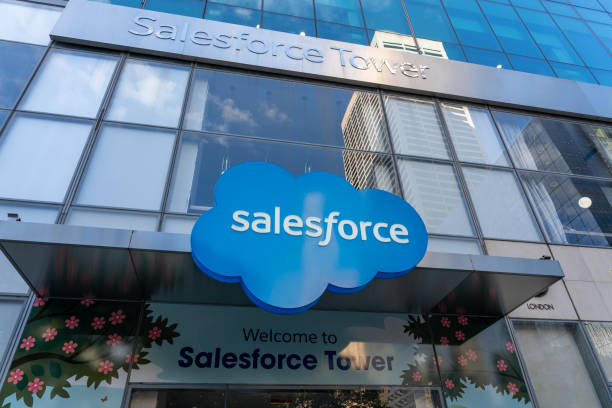How to Become a Salesforce Developer: A Comprehensive Guide
Salesforce developers are highly sought after due to their specialized skills in customizing and extending the Salesforce platform to meet business needs. This comprehensive guide will walk you through the steps to becoming a Salesforce developer, the essential skills required, and the career opportunities available.
What is a Salesforce Developer?
A Salesforce developer specializes in using Salesforce’s suite of tools and platforms to create and manage applications that address business needs. They are proficient in coding and configuring Salesforce applications, integrating Salesforce with other systems, and customizing Salesforce environments using Apex, Visualforce, and Lightning components.
Steps to Becoming a Salesforce Developer
1. Educational Background
- Degree: A bachelor’s degree in computer science, software engineering, or a related field is highly recommended. This educational background provides a solid foundation in programming and system design.
- Alternative Education: Coding bootcamps and online courses can also be effective for gaining the necessary skills, especially if they are focused on Salesforce development.
2. Learn Salesforce Fundamentals
- Trailhead: Salesforce’s free online learning platform, Trailhead, offers a range of modules and trails to help you learn the basics of Salesforce development. It covers essential topics such as Salesforce administration, data modeling, and security.
3. Gain Proficiency in Key Programming Languages
- Apex: Salesforce’s proprietary programming language, used for building custom business logic.
- Visualforce: A framework for building custom user interfaces on the Salesforce platform.
- Lightning Web Components: A modern framework for developing dynamic web applications within Salesforce.
4. Obtain Salesforce Certifications
- Salesforce Certified Platform Developer I and II: These certifications validate your ability to build custom applications on the Salesforce platform.
- Specialist Certifications: Consider certifications in specific Salesforce products like Marketing Cloud, Sales Cloud, and Service Cloud to further enhance your expertise.
5. Hands-On Experience
- Projects: Engage in hands-on projects to apply what you’ve learned. This can include contributing to open-source projects, developing your own applications, or volunteering for nonprofit organizations.
- Internships: Seek internships or entry-level positions that provide practical experience in Salesforce development.
6. Build a Portfolio
- GitHub: Create a GitHub repository to showcase your projects and code samples. This is crucial for demonstrating your skills to potential employers.
- Personal Website: Consider developing a personal website to highlight your portfolio, certifications, and professional achievements.
7. Networking and Community Engagement
- Salesforce Community: Engage with the Salesforce community through forums, local user groups, and events like Dreamforce. Networking with other professionals can provide valuable insights and job opportunities.
- LinkedIn: Maintain an active LinkedIn profile, connect with other Salesforce professionals, and participate in relevant groups and discussions.
Essential Skills for Salesforce Developers
Technical Skills
- Apex Programming: Mastering Apex is crucial for writing business logic and custom integrations.
- Visualforce and Lightning: Skills in creating custom user interfaces using Visualforce and Lightning Web Components.
- SOQL and SOSL: Proficiency in Salesforce Object Query Language (SOQL) and Salesforce Object Search Language (SOSL) for data manipulation.
Soft Skills
- Problem-Solving: Ability to troubleshoot and solve complex technical issues.
- Communication: Effective communication skills for collaborating with stakeholders and explaining technical concepts to non-technical users.
- Time Management: Managing multiple tasks and projects efficiently.
Career Path and Opportunities
Entry-Level Positions
- Junior Salesforce Developer: Typically involves working under the supervision of senior developers and focusing on learning and basic coding tasks.
Mid-Level Positions
- Salesforce Developer: Responsible for developing and implementing solutions independently, interacting with clients, and participating in the design process.
Senior Positions
- Senior Salesforce Developer: Leads projects, mentors junior developers, and handles complex integrations and customizations.
- Salesforce Architect: Focuses on designing and overseeing large-scale implementations, ensuring best practices and scalability.
Job Market and Salary Expectations
Salesforce developers are in high demand, with the job market expected to grow significantly. According to Built In, the average salary for a Salesforce developer in the United States ranges from $107,500 to $177,300 annually, depending on experience, location, and specific job role.
Conclusion
Becoming a Salesforce developer involves a combination of formal education, hands-on experience, and continuous learning through certifications and community engagement. With the growing demand for Salesforce skills, embarking on this career path offers numerous opportunities for professional growth and high earning potential.






